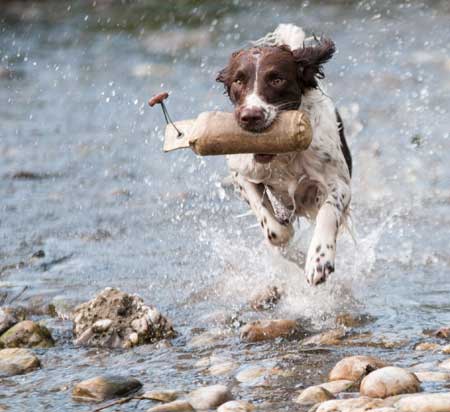Cranial Cruciate Ligament (CCL) ruptures are the most common cause of hind limb lameness in dogs. Dogs of any breed, sex or age can suffer a CCL injury. It’s a painful, acute or chronic degenerative injury, usually of the anterior cruciate ligament, that results in partial or complete instability of the knee joint.
Read more →Archive for the Vet Science Category
Medical marijuana is being used by vets in the USA. Should Australian veterinarians be allowed to administer it to animals in pain? As a pet owner, would you want to have this treatment available? Please, vote in our poll to tell us what you think.
Read more →One in seven dogs in Australia are living with congestive heart failure, and their owners may not even know it. Check out our video on this silent killer and discover the signs that will tell you if your best mate is at risk.
Read more →We’re very proud to announce that Dr. Bek and Alpine Animal Hospital have been credited for our contribution to the discovery of a previously unidentified genetic disease in Tenterfield Terriers.
Following two years of intensive research and DNA testing, it has now been accepted by the veterinary community and breeder’s groups that Neonatal Hypothyroidism, or Congenital Hypothyroidism with Goiter (CHG) in Tenterfield Terriers is caused by a mutated gene, first identified by Dr. Bek right here in Porepunkah.
Read more →Our animal hospital now has the ability to do in-house cultures on swabs to identify a specific bacteria and to establish its resistance and sensitivity to particular antibiotics, helping us identify the most effective antibiotic to use for treatment. Adding this new test to our already extensive pathology facilities is an important step forward in ensuring we can do all of our own testing right here in the Alpine region. The new bacterial swab culture facility has meant we can significantly reduce the waiting time between consult and test result, allowing us to quickly instigate the most appropriate and effective treatment.
Read more →We now have our own blood bank at the hospital, ensuring that, in cases of emergency, we can provide a blood transfusion to a dog injured in an accident, or needing blood because of a life-threatening illness. Do you know the blood group of your dog? Could you tell your vet what it was if your dog needed an emergency transfusion?
Read more →
